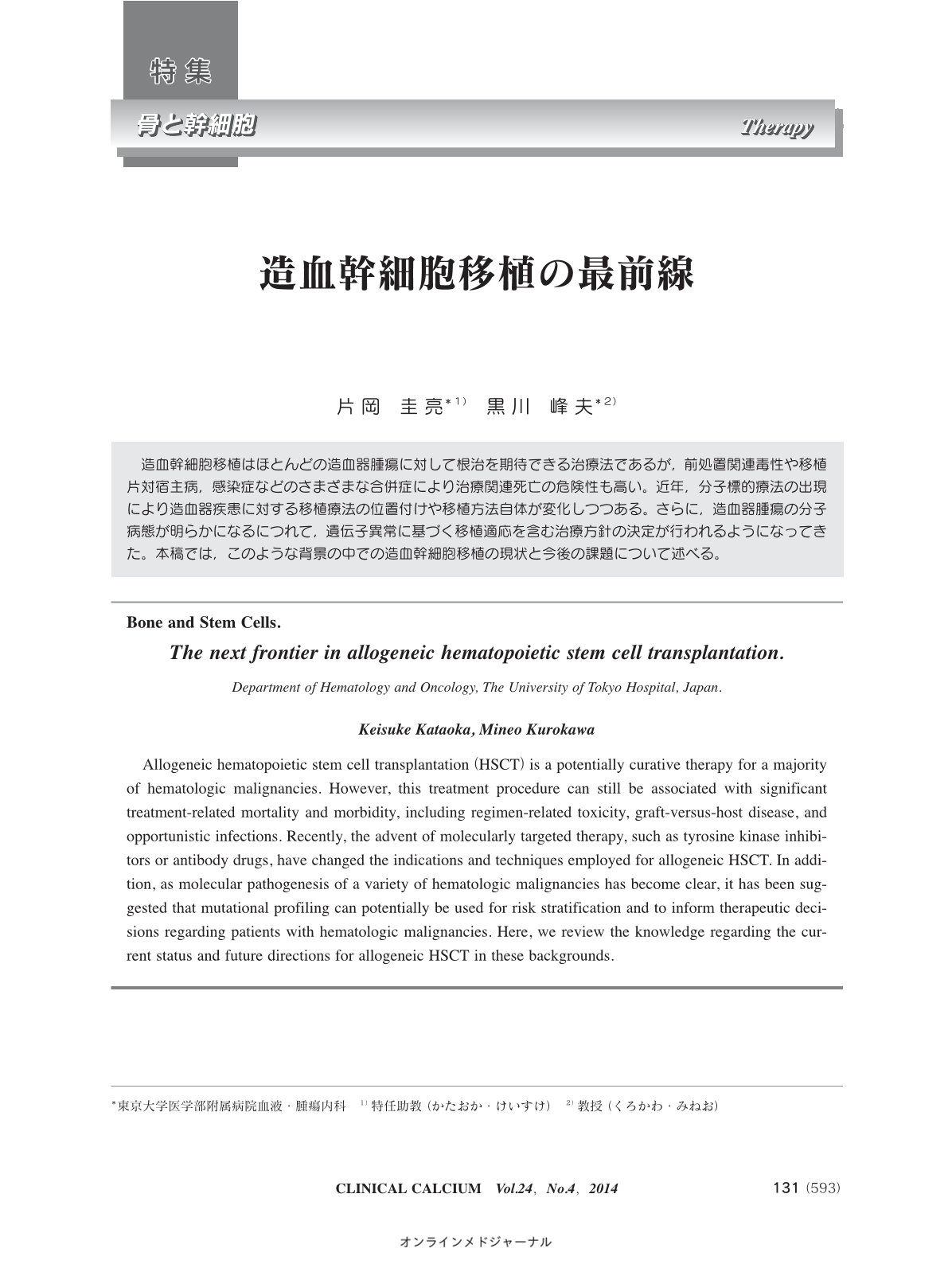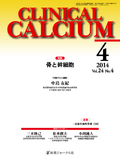Japanese
English
- 有料閲覧
- Abstract 文献概要
- 1ページ目 Look Inside
- 参考文献 Reference
造血幹細胞移植はほとんどの造血器腫瘍に対して根治を期待できる治療法であるが,前処置関連毒性や移植片対宿主病,感染症などのさまざまな合併症により治療関連死亡の危険性も高い。近年,分子標的療法の出現により造血器疾患に対する移植療法の位置付けや移植方法自体が変化しつつある。さらに,造血器腫瘍の分子病態が明らかになるにつれて,遺伝子異常に基づく移植適応を含む治療方針の決定が行われるようになってきた。本稿では,このような背景の中での造血幹細胞移植の現状と今後の課題について述べる。
Allogeneic hematopoietic stem cell transplantation(HSCT)is a potentially curative therapy for a majority of hematologic malignancies. However, this treatment procedure can still be associated with significant treatment-related mortality and morbidity, including regimen-related toxicity, graft-versus-host disease, and opportunistic infections. Recently, the advent of molecularly targeted therapy, such as tyrosine kinase inhibitors or antibody drugs, have changed the indications and techniques employed for allogeneic HSCT. In addition, as molecular pathogenesis of a variety of hematologic malignancies has become clear, it has been suggested that mutational profiling can potentially be used for risk stratification and to inform therapeutic decisions regarding patients with hematologic malignancies. Here, we review the knowledge regarding the current status and future directions for allogeneic HSCT in these backgrounds.



